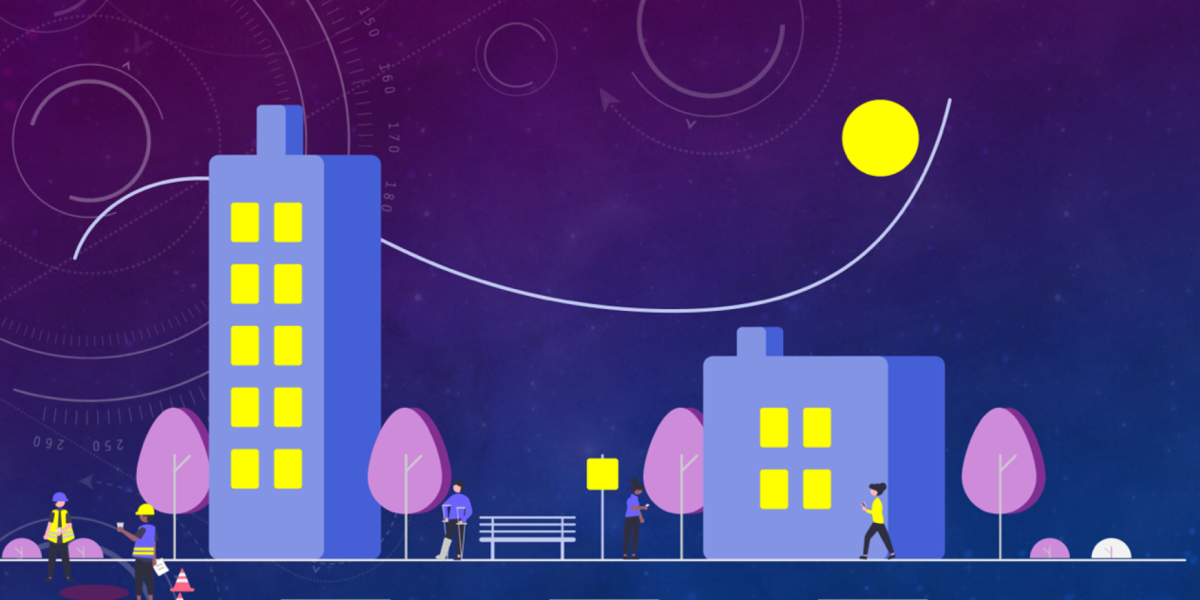
Designing executive education programmes for today's leaders
Executive education begins with the recognition that we are not teaching students - we are working with experienced leaders.
- Home
- / Insights
- / Knowledge sharing
- / Reframe taken-for-granted urban spaces with the Management Education Campus Field Trip Pack
Reframe taken-for-granted urban spaces with the Management Education Campus Field Trip Pack

Authors

Dr Matt Offord CMBE
Associate Director Learning and Teaching, Adam Smith Business School, University of Glasgow
Karma police, arrest this man,
He talks in maths
He buzzes like a fridge
He’s like a detuned radio
Radiohead 1997
Our world, it feels, is becoming more artificial. Back in 1956, the most eminent mathematicians gathered to discuss what they would call artificial intelligence. We are talking Claude Shannon, John McCarthy and Herbert Simon, no less; giants of computer science and information studies. They coined the phrase ‘artificial intelligence’ or AI, as it has become more commonly known. The key word, we have discovered, is artificial.
AI attempts to produce plausible, human-like responses to our questions. In the case of Large Language Models (LLM), it converts huge volumes of statistical data into language; they literally talk in maths – which is why they sound like detuned radios, despite all the buzz (or tech-hype) around them. The issue here is artificiality, not AI. But, we cannot arrest the developers of Large Language Models, nor can we put AI back in its own 'black box’. And if we did, would learning and assessment really become free of artificiality? Would we need to go for Tim Berners-Lee next?
While many scholars have made great strides in understanding how generative AI can help students become more critical and how to use the tool both ethically and sensibly, I have gone in a different direction: outdoors…but not far! Teaching at Adam Smith Business School in Glasgow, the temptation is to head for the great wilderness, with the Trossachs so tantalisingly close, but business educators will find their subject much closer at hand. On campus, we encounter buildings named after influential men, but fewer buildings named after women. We can see, first hand, how charities reinhabit 19th Century buildings established by earlier capitalists in the pursuit of personal wealth. We can see 'tangled landscapes' (Reed 2024) of natural and created scenes, intertwined with built premises, monuments and mobile technology. This is a wealth of learning materials, all of it real, all of it authentic.
There are numerous techniques we can use to reframe these places of learning which are authentic and memorable. Here, we challenge the mind and not physical capacities of our learners. This is not about climbing every mountain, unless it is an intellectual one. The approach I use is called ecopedagogy. A development of Paolo Freire's critical pedagogy, we encourage students to learn about the world by being in the world.
Over the last 12 months, I have developed a 'campus field trip' pack (borrowing here from Bayer and Byrd Finley's book Ecopedagogies, Practical Approaches to Experiential Learning (2023). If you take your learning outside, preparation is key. This pack provides eight 30-40 min activities, which can be conducted by students in the campus environment. This is intended to be like a starter pack for introducing authentic outdoor learning to your course. Each task fits into an hour-long seminar or lecture and creates a treasure trove of experiences learners can draw on for assessment and life. It builds up to four hours of outdoor learning and can serve as a foundation for you to develop your own campus field trips. A full explanation of the approach, logistics and safety considerations is included with the pack.
Download the Management Education Campus Field Trip Pack here
Please make use of this educational resource and please do get in touch and let me know how you get on ([email protected]). Keep it real!
References:
Bayer, E. and Finley, J.B. eds., 2022. Ecopedagogies: Practical Approaches to Experiential Learning. Taylor & Francis.
Reed, J. Postdigital Outdoor and Environmental Education. Postdigit Sci Educ 6, 416–424 (2024). https://doi.org/10.1007/s42438-022-00323-2
